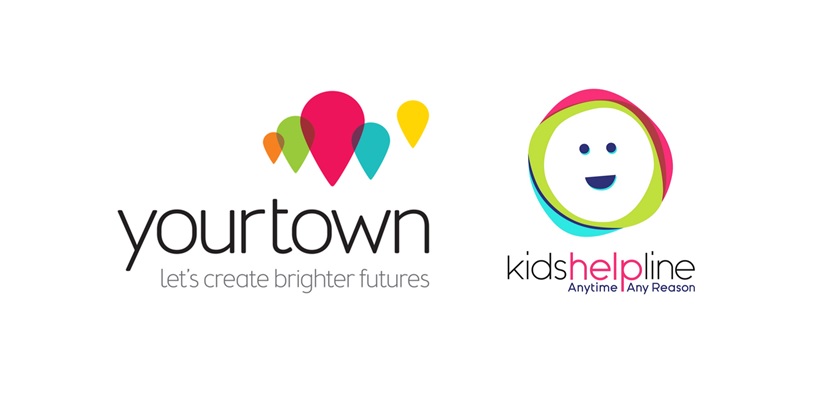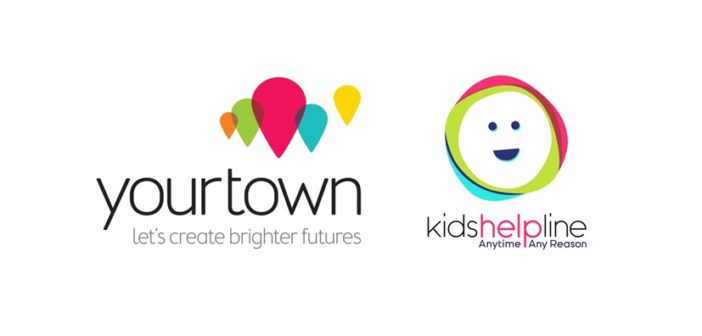
A national Kids Helpline survey of 1,264 children and young people has revealed why parents are only the number two go-to for kids reporting cyberbullying.
yourtown/Kids Helpline CEO Tracy Adams said yourtown initiated the national study to learn more about how young people experiencing cyberbullying seek help and the most helpful sources of support. Of those surveyed, 716 said they had been cyberbullied.
“The study revealed that 78% of cyberbullied young people surveyed told someone but close to half had not disclosed their experiences to a parent or other adult,” Ms Adams said.
“Friends were the most frequent go-to to report cyberbullying with 59% of those surveyed disclosing to a friend. Disclosure to parents and carers was the second choice (41%) however, those who did tell their parents found it the most helpful.”
One in five young people in Australia experience cyberbullying1. New data shows that last year, Kids Helpline received more than 3,580 contacts from children and young people about bullying with 905 being cyberbullied. Additionally, 2,700 young people contacted us about a cyber or online safety issue.
“We have also seen a significant number of young people using our bullying and cyberbullying self-help resources on the Kids Helpline website with website page views of these topics tripling nationally from 2017 to 2018,” Ms Adams said.
“While it’s great kids are reaching out for help more needs to be done to ensure all young people are ok about telling an adult about what they are experiencing and have the best chance of getting the support they need to put a stop to cyberbullying.”
Ms Adams said the study found closeness and trust were the most important considerations to those seeking help – they would not tell people they did not trust. They also believed it was crucial that those they told had an understanding of cyberbullying and social media. In addition, the anticipated action of those they told needed to be something they were ready for.
“Some thought their parents would not support them with one young person saying their Mother ‘is quite a tough love person’ and would make them tough it out, while in contrast another said they trusted their parents with everything ‘I have a really open relationship and talking to them always helps me’,” she said.
Barriers to telling parents also included:
- Concerns that their parents would overreact
- Didn’t want to get anyone in trouble because it could make matters worse
- They would be judged
- They would not be taken seriously
- It was too upsetting to talk about the cyberbullying
- Felt they needed to protect those around them from the issue.
“Safer Internet Day is promoting Respect, Responsibility, Reasoning and Resilience as a way of dealing with internet safety and is something parents, young people and the entire community need to commit to if we are to promote the positive use of technology in our communities. Education and an increased understanding of the issue is key to addressing a complex issue,” Ms Adams said.
“Simply banning the use of the non-educational use of mobile devices at school, for example, does not effectively address cyberbullying. It does not equip young people with the skills they need to appropriately engage online. It also does not promote open conversations in the home and across communities in Australia to ensure children and young people get the help they need.
“yourtown and Kids Helpline is working with Governments, corporate partners and communities to make evidence-based education and help-seeking the core actions prioritised to effectively address cyberbullying in Australia.
“This includes advocating the need to educate parents about social media and how to manage and talk with their children about cyberbullying, both to prevent and deal with issues children might bring to them.
“Our national school cyber safety education program Optus Digital Thumbprint with Kids Helpline has been specifically designed to help prevent digital safety issues and encourage help-seeking.”
Offered free to all primary schools in Australia, Kids Helpline’s professional counsellors talk with students and their teachers in group class sessions via digital technology about issues such as digital media literacy, respectful relationships online, online safety and cyberbullying.
Optus Digital Thumbprint with Kids Helpline is an eSafety certified program and was delivered to close to 12,000 primary school students in 2018.
Optus shares in the commitment of Kids Helpline and the Office of the eSafety Commissioner to promote the four R’s of good digital citizenship and is calling on the Australian community to take advantage of this free program.
“The digital world presents so many opportunities for young people but we need to ensure they are supported to have respectful and responsible interactions online,” said Helen Maisano, Director, Group Sustainability at Optus.
“Programs like Digital Thumbprint with Kids Helpline are crucial to ensuring children at an early age learn about digital safety and most importantly how to reach out for help from adults if they need it.”
To find out more about accessing the free schools program go to https://kidshelpline.com.au/schools
Kids Helpline is Australia’s only free confidential 24/7 online and phone counselling service specifically for children and young people aged 5 to 25 years. FREE call 1800 55 1800 or www.kidshelpline.com.au
OPTUS DIGITAL THUMBPRINT WITH KIDS HELPLINE
- Balancing life and technology – Understanding the impacts of technology overuse on your body and mind
- Cyberbullying – Be an online upstander and help make cyber space a better place
- Digital Media Literacy – Critical thinking about digital media messages
- Digital Identity – Digital footprint and living up to your values online
- Intro to Kids Helpline – Help-seeking and accessing supports on and offline
- Positive use of technology – Appropriate internet use
- Respectful relations online – Respecting others and managing online boundaries
- Staying Safe Online – Digital literacy: protect your safety, privacy and securing
See tips for parents about supporting their children see www.kidshelpline.com.au/parents. Access survey findings at ‘The Prevention and Reduction of Cyberbullying of Young People’ www.yourtown.com.au/insights/research-and-evaluations
Kids Helpline works closely with the Office of the eSafety Commissioner to support children and young people who are experiencing online safety issues. Young people can report cyberbullying at www.esafety.gov.au
1 eSafety and Mental Health Steering Group Call to Action – #nda2018. Accessed 30 Jan 2019 https://www.esafety.gov.au/about-the-office/newsroom/media-releases/esafety-and-mental-health-steering-group-call-to-action






